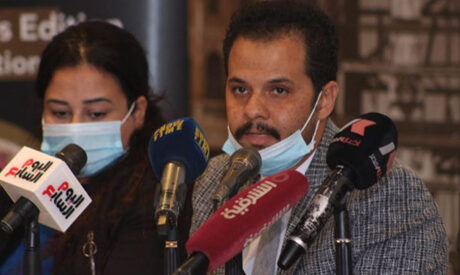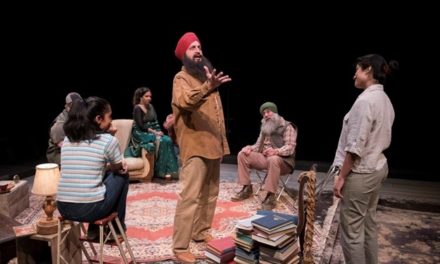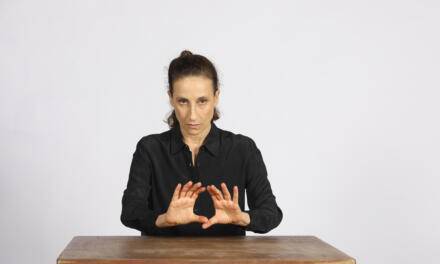The management of the Sharm El-Sheikh International Theatre Festival for Youth (SITFY) revealed details about its 5th edition during the press conference that took place on 9 November at the Supreme Council of Culture, located at the Cairo Opera House grounds.
The festival was scheduled to take place 1-7 April 2020, but due to the COVID-19 pandemic and general shutdown of all cultural activities across Egypt it had to be postponed. The new dates of the festival are 16 to 20 November in the resort city of Sharm El-Sheikh.
Held annually, the festival is the first of its kind to be held in Sinai. It was launched with the aim of providing opportunities to young theatre practitioners while decentralizing the artistic scene and reviving tourism in South Sinai.
The conference was led by the festival’s founder and president Mazen El-Gharabawy, in the presence of the renowned Egyptian actress and honorary president of the festival Samiha Ayoub, and the SITFY’s management: artistic director Ingy El-Bastawi, and member of the festival’s supreme committee Mohsen Mansour.
The festival will honor a number of renowned artists from Egypt and the Arab world: actress Hanan Mutawea, actor Bayoumi Fouad, actress Samiha Ayoub, Lebanese actor, and director Qassem Istanbuli, and the Egyptian director Islam Emam.
In its 5th edition, the festival will present 10 plays from Egypt and the international theatre scene, participating in a variety of competitions: Hamlet 1982 (Iraq), Isis (Egypt), Dream-Less-Land (Italy), Glass Monsters (Egypt), etc.
Among monodramas are Hamlet’s Dream (Kosovo), Image of Maria (Egypt), Qoum Yaba (Lebanon), among others.
The jury consists of numerous renowned theatre practitioners and academics representing different countries.
The main competition’s jury is headed by a Jordanian artist Amal Al-Dabbas. The panel also includes director Nidal El-Shafaei (Egypt), and writer Khaled Al-Rawai (Bahrain).
The jury of the monodrama competition brings together artist Marwa Abdel Moneim (Egypt), and directors Kevin Kimani and Khalid Abdulrahim Al-Zadjali (Oman).
The jury of the competition focusing on street theatre, and performances at non-traditional theatrical spaces is headed by Ayman El-Shiwi accompanied by Ali Mahdi from Sudan, and Marina Dimitrijević Maka (Serbia). This segment will present plays from Libya, Spain, and Egypt topped with a special performance of a play from Jordan.
Aiming to encourage young Egyptian writers, the festival also holds a playwright competition, which this year was dedicated to the late theatre academic Ahmed Sakhsoukh.
The writers submitted their works several months ago and the winners were chosen by a jury consisting of a theatre academic Sami Al-Jamaan (Saudi Arabia), playwright Muflih Al-Adwan (Jordan), playwright Ayman Salama (Egypt), and journalist and jury coordinator Dalia Hammam (Egypt).
The winners of the playwright competition include Ahmed Gamal Sediq – known as Ahmed Abu Diab – for his monodrama Thaqib El-Nayat, Abdo El-Husseini for Tarjuman Al-Ashwq, and Mohamed Abdel-Rahman for Abnaa El-Ghad.
The festival also recognizes first works by young playwrights with winners being awarded the Essam El-Sayed Prize. In this edition, 25 texts by young writers from many Egyptian governorates were submitted to the jury that included artist Rania Fathallah, director Mohamed El-Shafei, and playwright Rasha Abdel-Moneim.
The first prize winner is Mohamed Hisham from Cairo for his text titled The Excellencies. The second prize is awarded to Ashraf Mohamed Ali from Alexandria for his text Marasad, while Michael Magdy from Giza won third prize for his play titled Smoke.
The festival will also hold numerous workshops and discussions on contemporary theatrical practices, 150 years of Egyptian theatre history, as well as debates on advancing young theatre practitioners in arts.
For more arts and culture news and updates, follow Ahram Online Arts and Culture on Twitter at @AhramOnlineArts and on Facebook at Ahram Online: Arts & Culture
This article was originally published on Ahram Online on November 10, 2020, and has been reposted with permission. To read the original article, click here.
This post was written by the author in their personal capacity.The opinions expressed in this article are the author’s own and do not reflect the view of The Theatre Times, their staff or collaborators.
This post was written by Ati Metwaly.
The views expressed here belong to the author and do not necessarily reflect our views and opinions.


















